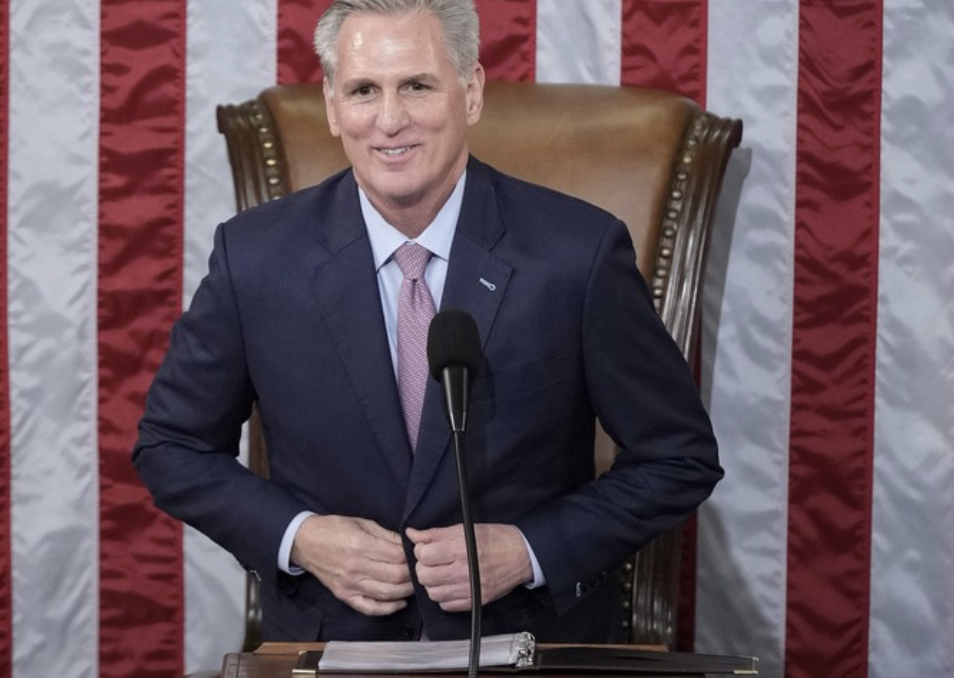By: Daniel Henninger – wsj.com – May 31, 2023
The Biden-McCarthy debt-ceiling deal is a compromise driven, according to conventional wisdom, by the threat of a U.S. default. The triggering event looked to me more like the threat of a hanging.
Virtually everyone in political life knows the saying by the 18th-century British wit Samuel Johnson that nothing so concentrates a man’s mind as the prospect of his hanging. For President Biden, who said for weeks he wouldn’t negotiate on spending with Speaker Kevin McCarthy, the focusing of his mind surely arrived with the most recent CNN poll.
What I can only guess was someone at the CNN poll with Johnsonian wit created a question that actually asked voters if Mr. Biden’s re-election would be a “disaster” or, at best, “a setback.” The total for both hit an astonishing 66%, with 41% in the “disaster” column. As CNN wryly summarized the results for Mr. Biden: “Convincing the overall public that he deserves a second term could prove a challenge.”
Thus the McCarthy compromise.
The reaction to the deal among the House Republican Caucus’s most conservative members was, as always, nuanced. North Carolina Rep. Dan Bishop tweeted: “RINOs congratulating McCarthy for getting almost zippo in exchange for $4T debt ceiling hike was enough to make you [puke emoji].” By the way, can we start a movement to retire the puke emoji?
The full House voted Wednesday to approve the debt deal. Trust me: The process will grind on. This is a moment to recognize what actually happened in the past week.
Forget the debt ceiling. The Biden-McCarthy compromise is a big deal because it is a spending compromise. An important provision of the deal is that if, by the end of the year, the House and Senate haven’t passed 12 appropriations bills (the long-forgotten way budgeting is supposed to work), all discretionary spending would become subject to an automatic 1% cut. This is what is known as a “sequester.” A sequester is to Democrats what garlic is to vampires.
It is hard to overstate the political significance of this concession on spending by Mr. Biden. Before the compromise, the position of Mr. Biden and virtually all Democrats except Sen. Joe Manchin was that Republicans had to agree to extend the debt ceiling in return for a promise of negotiations later on spending limits.
A Democratic commitment to spending reform was worth less than the hot air it took to make it. The truth today is this: The modern Democratic Party—the party of Bernie Sanders, Elizabeth Warren and the House Squad—won’t cut or slow spending for any existing federal program, ever. Now, Mr. McCarthy’s negotiators have managed to create a wedge against the left’s massive opposition to spending reforms.
In the wake of the compromise, some conservative House members have been appearing and reappearing on television to redo their January fire-bombing of Mr. McCarthy—Mr. Bishop of North Carolina, Chip Roy of Texas, South Carolina’s Ralph Norman and Florida’s Byron Donalds. Diehards have their uses, giving voice to voters who feel their beliefs have been abandoned. Shouting “No!” against the tide is a time-honored option.
But a risk in persistent die-hardism is that one can miss shifts in the public’s mood. That is what happened to the Democratic left on spending.
Mr. Biden and the Democrats loaded everything onto the assumption that not extending the debt ceiling to avoid default was so unthinkable that the Republicans would cave. It turns out the unthinkable suddenly had a caveat: Most voters said they wanted both a debt-ceiling extension and federal spending restraint. Whatever else, that’s not a progressive sentiment.
The April Harris poll found (as did an AP/NORC poll) that a strong majority of voters, some 60% or more, think the federal government has too much debt, its spending should be frozen and support clawing back unspent Covid funds. Which is essentially what Mr. McCarthy just got.
The word “compromise” has fallen into bad odor because polarization is so persistent and intense. That doesn’t mean the public wants to wallow in these divisions forever.
If the Washington left misread the public mood on spending, Mr. McCarthy’s diehard opposition on the right, virtually all from safe seats, are similarly underestimating the significance of the compromise.
This isn’t 2016. Shouted rage was sufficient then to win votes. By 2020, it got tiresome for swing voters, and the pandemic further wore down the public’s appetite for opposition-only politics. Candidate Joe Biden’s promise of a more settled politics had genuine appeal. Mr. Biden’s approval is in the basement because he violated that promise, not because he was wrong to make it.
Today, the fulcrum of the nation’s political mood on which elections are won or lost has not only settled in the center, it appears to be drifting to the right—on spending, crime, the border, parents’ rights. Changes like that in the political zeitgeist don’t come often. Mr. McCarthy’s House debt negotiators delivered a deal that catches the broader public’s conservatizing drift. If House conservatives blow it up, we’ll know that oppo-politics isn’t just a matter of principle. It’s dopamine.
To see this article in its entirety and subscribe to others like it, please choose to read more.
Source: McCarthy’s Debt-Ceiling Deal Meets ‘Die Hard 2’ – WSJ
 Listen Online
Listen Online Watch Online
Watch Online Find a Station in Your Area
Find a Station in Your Area








 Listen Now
Listen Now Watch Online
Watch Online
